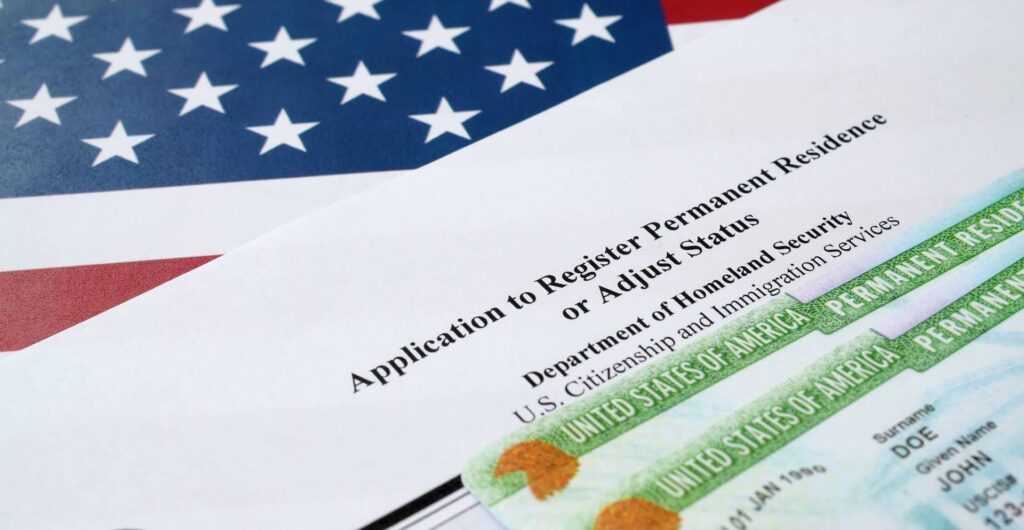A deportation hearing is a serious legal event that can determine if someone is allowed to remain in the U.S. or will be forced to leave. You’re required to attend; if you don’t, the judge can order you to be deported without further hearings. In some cases, you may be able to attend via phone or video, but that needs to be confirmed with the court ahead of time.
If you’re appearing in person, plan. Make sure you know where the courtroom is located and how long it takes to get there. Arrive as early as possible, so there’s no concern about being late and possibly having the court consider you to have skipped the hearing. Read on for more information about what happens in the deportation hearing process.
How Will I Know if There’s a Deportation Hearing About Me?
You’ll receive one of two documents:
A Notice to Appear (NTA) from the government. This details why the government thinks you should be deported, including any charges or accusations against you. The NTA may appear at your home, or if Immigration officials have detained you at the U.S. border, you may receive it in custody. The NTA may list a court date on which you’re required to appear or simply note that a court date will be assigned shortly. Everyone who appears in Immigration Court must receive an NTA. If you’re called to court without one, notify the judge on the case that no NTA was provided.

You may receive a separate letter (not an NTA) that says you must appear in Immigration Court. As with the NTA, it may or may not specify a date.
How Should I Approach My Deportation Hearing?
Once you’ve arrived (early, as noted above), you’ll need to sign in for the court. This lets the court know you’re present and ready for your hearing. Then it’s a matter of waiting for your name to be called. How long that takes depends on where you are on the list, how many people are ahead of you, and how long each case before yours takes.
If the court adjourns without calling your name, find a court employee and report that before you leave the building. Do not leave the building without notifying the court of this–it can harm your case. These kinds of details are among the reasons it’s a good idea to have an immigration attorney with you who understands the processes and what must happen to avoid unintentionally violating any court requirements.
What Happens When My Case Is Called in Immigration Court?
Your first hearing in Immigration Court is called the Master Calendar Hearing. There are several people involved in this stage of deportation proceedings: The judge, whose ultimate task is to determine if you should be deported or not; the government lawyer, who will present evidence as to why you should be deported; your attorney (if you have one) who will present the case for why you shouldn’t be deported; and, if needed, an interpreter if English is not your primary language.
Depending on the amount of evidence from either side, the judge may opt to schedule another (or multiple) Master Calendar Hearings after the first one. They may also opt to schedule something called an Individual Hearing, in which you can present evidence and testimony from others as to why you shouldn’t be deported.

The final stage is the Merits Hearing, in which the judge will go through all the presented evidence and testimony. This can be a lengthy hearing because it encapsulates all the criteria the judge will use to make the final judgment. In some cases, the judge will issue the order orally at the end of the Merits Hearing, while in other cases the judge will issue the order later in writing.
If you don’t have an attorney but want one, the judge can also schedule another date to give you time to find an attorney. Unlike many other court situations, an attorney will not be appointed for you by the court; it’s up to you to find one.
If the Judge Orders My Deportation, Can I Appeal?
Yes. This is another situation in which having an experienced immigration attorney working with you is valuable. Appeals can be filed to the Board of Immigration Appeals (BIA), but only if you haven’t previously waived your right to an appeal at an earlier stage. If you didn’t waive your right, you’ll have 30 days from the date of the final decision to file the appeal. After that, you no longer have the right to appeal.
The government also has the right to appeal if the judge denied the deportation and the government thinks they should reconsider. This doesn’t happen as often as the plaintiff appealing, however.
What Should I Do if a Loved One or I Am Ordered to a Deportation Hearing?
Call us as soon as possible at 857-347-3701 to request a free family immigration case evaluation. This is a significant legal event that could result in someone being forced to leave the U.S. It’s also a highly complex field of law, and the sooner experienced, knowledgeable legal assistance is brought in, the better.

Sometimes the first reaction is to ignore the hearing, but legally, that’s a disastrous approach. As noted above, the result of not showing up for the hearing is that the judge has the right to order immediate deportation. It’s important to demonstrate responsiveness and respect for the process by following the requirements of the hearing. We know this is a frightening and stressful time, and we’re here to help it go as smoothly as possible.








